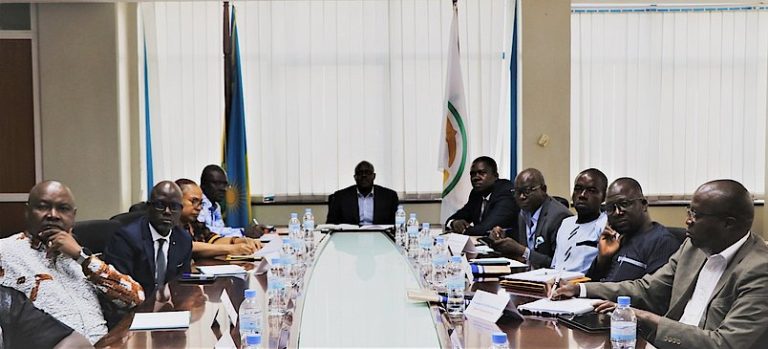
Rwanda’s post-genocide governance system is built in such a way that everything the leadership does is for the people, as opposed to the pre-genocide one in which power was in the hands of a cabal who barely cared about involving citizens.
The remarks were made by Dr. Félicien Usengumukiza, RGB Head of Research and Home Grown Solutions Department, while receiving a delegation from Yel Conseil, a consultancy firm based in Burkina Faso.
The delegation, predominantly made of Burkinabe senior public servants, visited RGB to benchmark on strategies, policies and initiatives for good governance and service delivery.
Also, they had a keen interest in processes and procedures for the registration and monitoring of the functioning of national and international non-governmental organizations, faith based organizations and political organizations.
Dr. Usengumukiza said that Rwanda’s post-genocide governance system has radically transformed, providing citizens with a platform to hold leaders accountable.
“Our governance system has completely changed. Before the 1994 genocide against the Tutsi, power was in the hands of a cabal who barely cared about citizen participation. But today, everything we do is for the people”.
He further noted: “When the Head of State visits local government entities during his outreach programme, citizens ask all sort of questions and there are no taboo questions. Mayors or even governors can be criticized for their failures in the presence of the Head of State and this signals that citizens are not afraid to criticize anything going awry in their areaand quite often the problem is resolved right on the spot.This is a way of being accountable to the population and it’s also a means of involving the population in the management of public affairs”.
In regard to Rwanda’s promotion of transparency and zero tolerance to corruption, Dr. Usengumukiza said: “In our country, corruption is categorized as a crime with no statute of limitations, on the same footing as crimes of genocide. If you run away after you are accused of corruption, even after twenty years you will be prosecuted. So, that induces a deterrent effect and no one is above the law. Even ministers or governors can be tried for corruption. We have ministers who have lately found themselves in the dock for corruption and that instills confidence in the population. For example, when the country receives a line of credit for the construction of infrastructure, the population is confident that the credit will not be misused”. (End)
